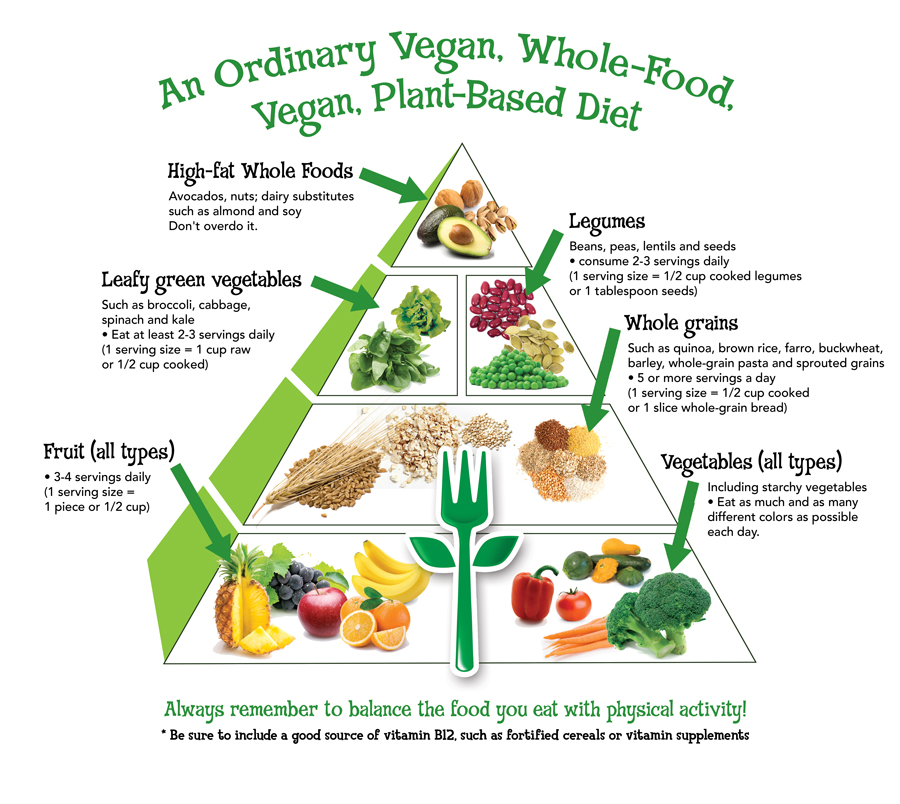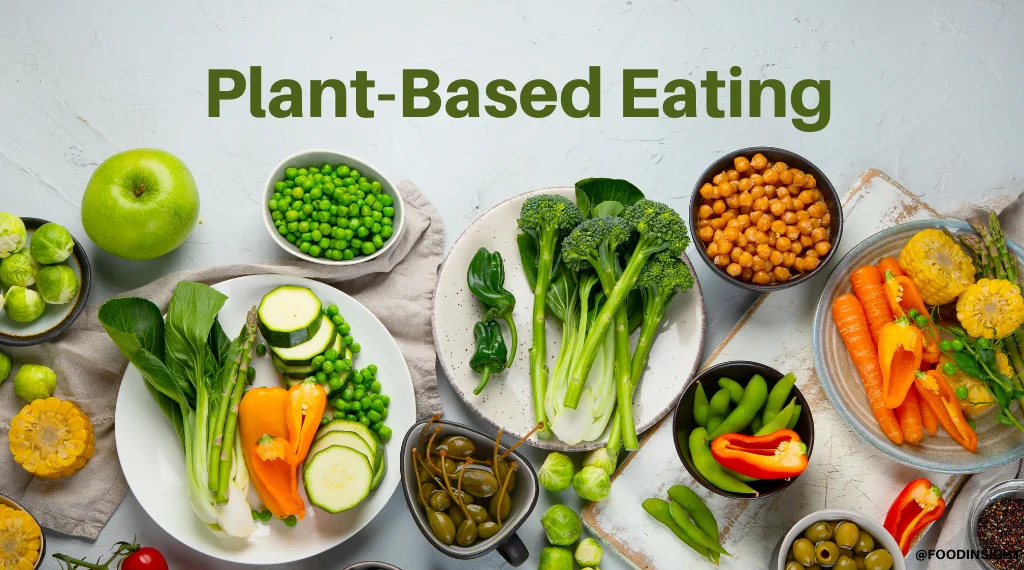Everything About Healthy Food: Benefits of Embracing Plant Based Options
The conversation bordering plant-based diet regimens has actually obtained substantial focus in the last few years. Numerous individuals are exploring the potential wellness advantages, dietary benefits, and environmental effects related to these nutritional selections. As people become more knowledgeable about their food's influence on well-being and sustainability, inquiries develop about the functionalities of adopting such a way of living. What certain adjustments can one anticipate, and exactly how might these options improve not only personal wellness however also the earth's future?
Understanding Plant-Based Diet Regimens
Numerous people connect plant-based diets mostly with vegetarianism or veganism, these diets can incorporate a broad array of eating patterns that focus on whole, minimally refined plant foods. Such diet plans usually include fruits, veggies, entire grains, nuts, seeds, and vegetables, while restricting or getting rid of pet items. This adaptability allows individuals to customize their nutritional choices according to individual preferences and dietary requirements. Some may adopt a largely plant-based diet while still sometimes consuming meat or milk, typically referred to as a flexitarian technique. The emphasis remains on including even more plant foods, which can bring about a diverse range of dishes and tastes. Understanding these different analyses of plant-based eating is vital for valuing its accessibility and appeal in modern food society.
Wellness Benefits of Plant-Based Foods
The health benefits of plant-based foods are significant, using a nutrient thickness advantage that supports overall wellness. Research study shows that these foods can enhance heart health and wellness and play a crucial role in effective weight administration. By integrating a lot more plant-based alternatives, people might boost their nutritional selections and advertise lasting wellness.
Nutrient Thickness Benefit
Nutrient thickness plays an essential role in the health advantages of plant-based foods, making them an engaging selection for those looking for a well balanced diet plan. Plant-based foods, such as fruits, vegetables, beans, nuts, and whole grains, are frequently rich in essential vitamins, minerals, and antioxidants while being lower in calories. This high nutrient density allows people to take in less calories while still fulfilling their nutritional needs. Additionally, these foods are packed with nutritional fiber, promoting digestive system wellness and assisting in weight monitoring. By integrating nutrient-dense plant-based options, customers can boost their general health and wellness, support their body immune systems, and reduce the risk of persistent illness. Ultimately, the nutrient density of plant-based foods underscores their importance in a health-conscious way of living.
Heart Health And Wellness Enhancement

Weight Monitoring Assistance
Along with advertising heart health and wellness, a plant-based diet can substantially help in weight administration. This dietary approach highlights whole foods such as fruits, vegetables, vegetables, nuts, and whole grains, which are normally lower in calories and greater in fiber contrasted to animal-based items. The high fiber web content helps increase satiation, minimizing overall calorie intake. Furthermore, plant-based diet plans are frequently abundant in essential nutrients while low in harmful fats, making it simpler to keep a healthy weight. Plant Based Chicken. Study suggests that people who adopt a plant-based way of life often tend to have reduced body mass indexes (BMIs) and experience more effective weight loss compared to those who take in meat-heavy diets. Embracing plant-based options is a calculated option for efficient weight monitoring.
Nutritional Worth of Plant-Based Active Ingredients
Plant-based components are abundant in essential nutrients, offering a diverse range of vitamins, minerals, and anti-oxidants that add to overall health. A comparison of healthy protein resources exposes that while animal products are commonly deemed superior, several plant-based options provide sufficient protein and various other useful substances. Recognizing the dietary value of these active ingredients can aid people make educated nutritional selections.
Necessary Nutrients in Plants
Nutrient-rich active ingredients discovered in plants provide a varied selection of essential minerals and vitamins that add considerably to total health and wellness. These ingredients are rich in vitamins A, C, and K, which sustain immune function, vision, and blood clotting, specifically. Furthermore, plants give vital minerals such as calcium, magnesium, and potassium, essential for heart health, muscle feature, and bone strength. The visibility of fiber in plant-based foods help food More Help digestion and promotes a healthy and balanced intestine microbiome. Anti-oxidants, discovered generously in vegetables and fruits, assistance battle oxidative stress and reduce inflammation. Moreover, numerous plant foods are low in calories yet high in nutrients, making them an outstanding choice for those looking for to maintain a healthy and balanced weight while guaranteeing excellent nutrient intake.
Contrasting Healthy Protein Sources
Protein resources vary considerably in their dietary accounts, with plant-based active ingredients providing unique benefits. Unlike animal proteins, which typically consist of saturated fats and cholesterol, plant proteins tend to be reduced in these harmful parts. Legumes, nuts, seeds, and whole grains are abundant in crucial amino acids, fiber, vitamins, and minerals. For instance, lentils supply high protein content together with significant iron and folate, while quinoa is a complete healthy protein, supplying all nine essential amino acids. Additionally, plant-based healthy proteins are usually come with by antioxidants and phytochemicals that support general health. The shift to plant-based healthy protein sources not just enhances dietary consumption but likewise lines up with sustainable dietary techniques, lowering environmental effect and advertising long-lasting wellness benefits.
Environmental Effect of Plant-Based Consuming
As recognition of climate modification grows, numerous individuals are exploring sustainable dietary selections that can significantly decrease their environmental impact. Plant-based eating has actually become a considerable factor to minimizing greenhouse gas emissions, which are mainly connected with livestock production. The cultivation of fruits, grains, vegetables, and veggies normally requires less sources, such as water and land, compared to animal get more farming. Furthermore, plant-based diets can lead to reduced deforestation, as much less land is required for grazing livestock or growing animal feed. By changing in the direction of plant-based options, customers can support biodiversity and promote healthier environments. In general, accepting plant-based eating not just advantages personal health and wellness however additionally stands for a crucial step towards environmental sustainability and conservation efforts.
Conquering Common Misconceptions
While several people acknowledge the benefits of a plant-based diet plan, a number of misunderstandings frequently discourage them from completely embracing this lifestyle. An usual idea is that plant-based diet plans do not have enough healthy protein; nonetheless, many plant sources, such as vegetables, nuts, and tofu, provide enough healthy protein. Additionally, some presume that this diet is costly, when as a matter of fact, staples like beans, rice, and seasonal veggies can be rather inexpensive. One more false impression is that plant-based eating is excessively limiting, whereas it really provides a diverse variety of flavors and foods. Lots of stress that a plant-based diet might lead to deficiencies, yet with correct planning, individuals can acquire all required nutrients, including minerals and vitamins, while delighting in a large variety of scrumptious dishes.
Tips for Transitioning to a Plant-Based Way of living
Making the change to a plant-based way of life can be an enriching experience, though it commonly needs some support to navigate the preliminary changes. Initially, individuals are motivated to start slowly, incorporating even more fruits, vegetables, vegetables, and entire grains into their dishes while lowering meat and dairy products consumption. Meal preparation is necessary; preparing a regular menu can aid ease the change and protect against last-minute unhealthy choices. Checking out cooking approaches and new recipes can also maintain and enhance the experience excitement concerning plant-based consuming. In addition, joining support system or areas can offer motivation and share important ideas. Remaining educated concerning nutrition guarantees balanced meals, preventing shortages while promoting a healthy and balanced, gratifying plant-based way of life.

Delicious Plant-Based Dish Concepts
Discovering tasty plant-based meal ideas can motivate people to accept a much more nutritious diet regimen. One prominent option is a hearty quinoa salad, featuring cherry tomatoes, cucumber, and a zesty lemon-tahini dressing. An additional fave is a mouthwatering lentil stew, packed with carrots, celery, and aromatic natural herbs, excellent for a comforting supper. For breakfast, over night oats made with almond milk, chia seeds, and covered with fresh berries offer a healthy begin to the day. Furthermore, a vibrant vegetable stir-fry with tofu and a variety of vivid veggies can be a fast yet satisfying dish. Lastly, velvety avocado salute on whole-grain bread, sprinkled with seasonings and seeds, provides an easy yet tasty snack. These dishes display the selection and richness of plant-based consuming.

Regularly Asked Questions
Can a Plant-Based Diet Regimen Provide Sufficient Healthy Protein?
The question of whether a plant-based diet plan can offer sufficient healthy protein prevails. Many resources, consisting of vegetables, nuts, seeds, and whole grains, can satisfy protein needs efficiently, supporting a well balanced and healthy diet for individuals.
Are Plant-Based Diet Plans Ideal for Children?
The suitability of plant-based diet regimens for youngsters depends upon cautious preparation. Adequate nutrients must be guaranteed, consisting of proteins, minerals, and vitamins. With appropriate support, such diet plans can support healthy development and development in youngsters.
How Do I Eat in restaurants on a Plant-Based Diet regimen?
Eating in restaurants on a plant-based diet regimen entails looking for dining establishments with varied menus, requesting for alterations, and exploring vegan-friendly alternatives. Planning in advance and communicating nutritional preferences can boost the dining experience while preserving dietary choices.
What Are Typical Irritants in Plant-Based Foods?
Typical allergens in plant-based foods consist of soy, gluten, nuts, and seeds - Plant Based Chicken. People following a plant-based diet must understand these irritants and review tags thoroughly to stay clear of damaging reactions and assure secure usage
Can Plant-Based Diets Assist With Weight Reduction?
Research shows that adopting a plant-based diet might help with weight management due to its typically lower calorie density and higher fiber see this website content. This combination can enhance satiation, assisting individuals handle their caloric intake effectively. Numerous people link plant-based diet plans primarily with vegetarianism or veganism, these diet plans can incorporate a wide range of eating patterns that focus on entire, minimally processed plant foods. Nutrient density plays an essential function in the wellness benefits of plant-based foods, making them an engaging option for those looking for a well balanced diet plan. Plant-based diets have actually been shown to markedly improve heart health and wellness, as they frequently include components that sustain cardiovascular feature. In addition to promoting heart wellness, a plant-based diet regimen can considerably help in weight management. An usual belief is that plant-based diets lack adequate healthy protein; nevertheless, numerous plant resources, such as beans, nuts, and tofu, give sufficient protein.